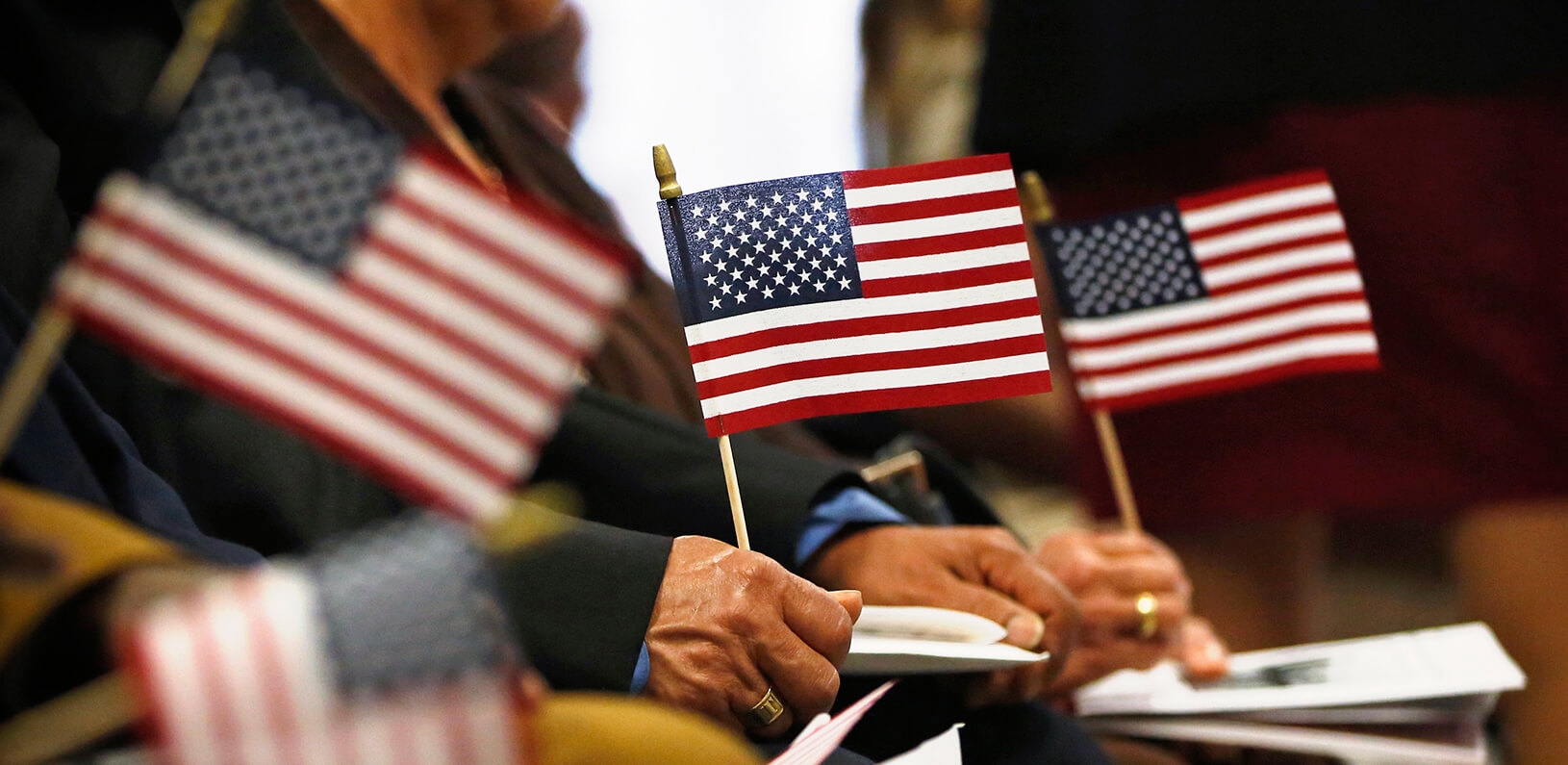
The U.S. Citizenship Act of 2021 includes an 8-year pathway to citizenship for millions of eligible undocumented individuals
Nearly a month after President Joe Biden introduced a sprawling immigration proposal, it was formally introduced in the House of Representatives, earmarking what Biden and his allies on the Hill are calling a “humane” solution to former President Donald Trump’s rigid, dehumanizing immigration policies.
Previously, the bill’s details were unknown, but on Thursday, Feb. 18, Rep. Linda Sanchez (D-C.A.) introduced the U.S. Citizenship Act of 2021 which, among other things, expands legal immigration channels, speeds up asylum processing, streamlines the backlogged immigration court cases and provides a pathway to citizenship for millions of immigrants.
Notably, it also seeks to provide a more stable, permanent solution for undocumented youth enrolled in the Deferred Action for Childhood Arrivals (DACA), which has provided eligible undocumented immigrants work authorization, protection from deportation and other benefits since 2012.
Sen. Bob Menendez (D-N.J.) plans to introduce the same legislation on Monday, Feb. 22 in the Senate. After weeks of speculating on the scant details, both Menendez and Sanchez disclosed specifics in a virtual news briefing on Thursday.
“We’re here today because last November, 80 million Americans voted against Donald Trump and everything he stood for. They voted to restore common sense, compassion, and competence in our government, and part of that mandate is fixing our immigration system which is a cornerstone of Trump’s hateful horror show,” Menendez told reporters.
The proposed bill, among other measures and proposals, includes:
• Providing an 8-year pathway to citizenship for all undocumented people who were “physically present” on or before Jan. 1 of this year
• Undocumented farm workers and youth who arrived in the U.S. as children and have temporary protected status under DACA will receive an expedited pathway to citizenship
• Rescind the penalty that prohibits returning to the U.S. for undocumented immigrants who leave the country for three to 10 years
• Replace the word “alien” with “non-citizen” in all government text relating to undocumented immigrants
Specifically, all undocumented immigrants would be given five years of provisional status. After that, they could apply for a green card, and three years after that, they could apply for citizenship. But DACA recipients and undocumented farm workers would be granted an expedited pathway: those who could provide work history could skip the five years of provisional status and immediately receive green card eligibility.
Notably, the bill’s promise to streamline family petitioning could be beneficial to specific immigrant communities, especially the Asian and Pacific Islander (API) community, which relies heavily on family-based programs (next to employment-based channels).
The bill incorporates parts of other immigration reform proposals, like the Reuniting Families Act, which was sponsored by Chinese American Rep. Judy Chu (D-C.A.). The provisions listed under this specific act speeds up the petitioning process of family members of U.S. residents, which usually takes up to two or more years, depending on country of origin.
“Modernization of family-based immigration and legalization of undocumented immigrants are top priorities for Asian Americans, who turned out in record numbers in the last election,” said John C. Yang, executive director of Asian Americans Advancing Justice — AAJC, who applauded the Reuniting Families Act, specifically.
For many API immigrant advocates, the bill is the beginning of a new era in immigration policy after years of fruitless proposals and urges to previous administrations to provide more permanent solutions that modernize the historically arcane American immigration system.
However, the bill is not without its critics, who pointed out mandates that don’t cater to specific immigrant communities, like some South East Asian refugees, many of whom have been continually deported, during not only the Trump administration but during former President Barack Obama’s administration, too.
“While these provisions would positively impact many Asian American and Arab Middle Eastern Muslim and South Asian (AMEMSA) community members, the bill includes harmful provisions as well,” Asian Americans Advancing Justice said in a statement.
“Specifically, the bill includes new additional criminal grounds of inadmissibility which will further punish vulnerable members of our communities. Immigrants with criminal convictions have already suffered cruelty and racial targeting in our justice system; they should not be doubly punished.”
Though Democrats hold control of both chambers in Congress, passing the U.S. Citizenship Act of 2021 won’t be a cakewalk.
Throughout his campaign, Biden was criticized for being a willing participant in Obama’s many failures to deliver permanent solutions for undocumented immigrants. Notably, Obama’s presidency has been tainted with record-breaking deportations of Central American and South East Asian immigrants.
Currently, Biden and Democrats don’t have enough Republican support that is needed to pass the bill in a bipartisan fashion. For some Republicans, the bill’s announcement on Thursday drew outrage who argued that the proposal does little to secure the border, which could encourage more illegal immigration.
Sen. Lindsay Graham (R-S.C.) — who previously co-sponsored bipartisan immigration legislation including the DREAM Act — said that the bill simply is not feasible. On NBC News, Graham suggested replacing the legalization of DACA-protected immigrants with beefed up border security.
“The more people you legalize, the more things will be required to be given, so we’ll see. It starts a conversation. You just can’t legalize one group without addressing the underlying broken immigration system. You just incentivize more. So, a smaller deal may be possible,” Graham said.
Sanchez acknowledged that Democrats and Republicans will likely have to reach a compromise, which may include a much more tailored version of the bill.
“We all know that when you introduce a bill, often times, the end result is not exactly the starting result,” Sanchez told reporters on Thursday.






